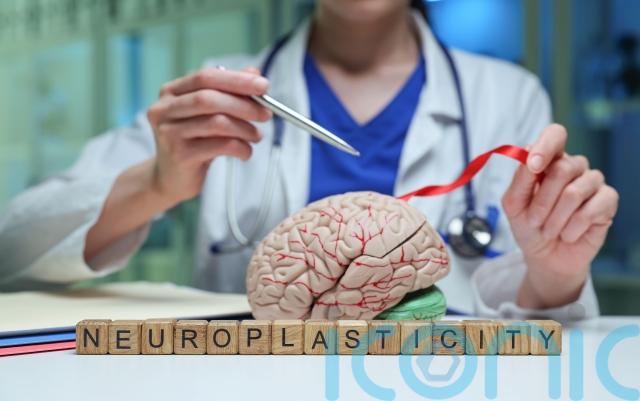
Think playing an instrument is just a childhood pastime or a talent reserved for the naturally gifted? Think again. Picking up a musical instrument later in life isn’t just a fulfilling creative pursuit – it’s also a powerful way to keep your brain healthy and engaged.
We got in touch with Dr Steven Allder, consultant neurologist at Re:Cognition Health, who explained how learning an instrument stimulates key areas of the brain, lifts your mood and supports long-term cognitive function. His message is clear: it’s never too late to start.
Whether you’re reigniting an old passion or trying something completely new, here is why learning to play music could be one of the smartest – and most enjoyable – investments in your brain health…
Helps sharpen memory

Learning and playing an instrument can boost memory later in life.
“When we learn music, the brain engages in complex processes such as reading notes, coordinating movement and recalling melodies. This strengthens neural networks linked to memory and attention,” explains Allder. “Much like exercise for the body, repeated practice reinforces these pathways, improving working memory and long-term recall.
“Studies show musicians often have better verbal memory and cognitive flexibility, suggesting that sustained musical activity helps the brain remain more resilient to age-related decline.”
Promotes neuroplasticity

“Learning an instrument over the age of 60 stimulates new neural connections and strengthens existing ones,” says Allder. “Each lesson requires motor coordination, auditory processing and problem-solving, forcing the brain to ‘rewire’ itself.
“This ongoing challenge helps maintain cognitive flexibility, which is particularly valuable as we age. By creating neuroplasticity, music learning acts as a powerful tool to keep the brain active, adaptable and better equipped to cope with age-related changes.”
Can help improve language and listening skills
“Music and language share overlapping networks in the brain, particularly in areas responsible for auditory processing and rhythm,” explains Allder. “Learning an instrument trains the brain to distinguish pitch, tone and timing with precision, which can translate into sharper listening and improved speech perception.”
For older adults, this can mean clearer communication, especially in noisy environments, notes the neurologist.
“Additionally, musical training strengthens connections between auditory and language centres, potentially supporting vocabulary retention and more effective processing of spoken words,” adds Allder.
Boosts mood and emotional wellbeing

Learning an instrument can significantly benefit emotional wellbeing and mental health.
“Playing music stimulates the release of dopamine and endorphins which are chemicals linked to pleasure and motivation,” explains the neurologist. “It also lowers cortisol, the stress hormone, helping to reduce anxiety and tension.
“The act of practising music requires focus and mindfulness, drawing attention away from worries and promoting relaxation. For older adults, music-making can also create social connections, further boosting mood. Together, these effects support better mental health and a greater sense of fulfilment in daily life.”
Engages executive functions
“Executive functions, such as planning, attention, problem-solving and self-control, are heavily engaged when learning music,” says Allder. “Playing an instrument requires focusing on the score, coordinating hands, anticipating the next note and adjusting in real-time.”
Over time, this repeated exercise improves skills like concentration, decision-making and mental flexibility, explains the neurologist.
“These are vital abilities for maintaining independence and adapting to challenges in later life, making music an excellent workout for the brain,” says Allder.
Learning an instrument engages multiple brain regions simultaneously.
“The motor cortex controls finger movements, the auditory cortex processes sound, and the hippocampus supports memory,” says Allder. “The cerebellum refines timing and coordination, while emotional centres like the amygdala and limbic system respond to the joy and meaning of music.
“This widespread activation makes music unique in how it integrates cognitive, motor and emotional functions. Few activities stimulate the brain as holistically, which is why music is so powerful in promoting long-term brain health.”
May help decrease risk of dementia
“While no single activity can guarantee dementia prevention, learning an instrument may help reduce risk,” says Allder. “Cognitive stimulation through music builds what we call “cognitive reserve” which is the brain’s resilience against age-related decline. By strengthening neural networks and promoting neuroplasticity, musical activity helps the brain compensate if damage from dementia begins.
“In addition, the emotional benefits, such as reduced stress and improved mood, also support overall brain health. Taken together, these factors suggest that learning music later in life can be a valuable protective strategy.”
So, what are you waiting for? It’s time to dust off the old keyboard or to treat yourself to a shiny new guitar – your mind and mood will thank you.
Subscribe or register today to discover more from DonegalLive.ie
Buy the e-paper of the Donegal Democrat, Donegal People's Press, Donegal Post and Inish Times here for instant access to Donegal's premier news titles.
Keep up with the latest news from Donegal with our daily newsletter featuring the most important stories of the day delivered to your inbox every evening at 5pm.